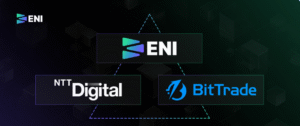Decentralized Identity in DeFi Security
In the decentralized finance (DeFi) space, security is paramount. Decentralized identity (DID) solutions offer a promising approach to address the challenges associated with user identification and data privacy. This article explores the role of decentralized identity in enhancing DeFi security, including its benefits, applications, and challenges.
Understanding Decentralized Identity
Explanation of Decentralized Identity Concepts
Decentralized identity refers to the ownership and control of one’s identity information without relying on centralized intermediaries. It leverages blockchain technology and cryptographic principles to provide secure and verifiable identity credentials.
Benefits of Decentralized Identity in the Digital Landscape
Decentralized identity offers several advantages, including user-centric control over personal data, increased privacy, and reduced risks of data breaches and identity theft. It also enables interoperability between different platforms, simplifying user experiences and streamlining identity verification processes.
Enhancing DeFi Security with Decentralized Identity
- Verifying User Identity and Preventing Fraudulent Activities
Decentralized identity enables strong identity verification, reducing the risk of fraudulent activities in DeFi. By leveraging decentralized identifiers and verifiable credentials, protocols can verify the authenticity of users and their transactions, mitigating the potential for identity-related attacks.
- Protecting User Privacy and Data
Decentralized identity solutions prioritize user privacy by giving individuals control over their personal information. Users can selectively disclose only the necessary identity attributes while keeping the rest private. This approach minimizes the exposure of sensitive data, enhancing user privacy and data protection.
- Reducing Reliance on Centralized Identity Providers
Traditional identity systems often rely on centralized identity providers, creating single points of failure and potential data breaches. Decentralized identity empowers users to manage their own identity credentials, reducing dependency on centralized authorities and enhancing the security and resilience of identity verification processes in DeFi.
Decentralized Identity Solutions in DeFi
Overview of Existing Decentralized Identity Projects in DeFi
Several decentralized identity projects have emerged in the DeFi space. These projects aim to provide secure and user-centric identity solutions, allowing individuals to establish and control their digital identities across different DeFi protocols and applications.
Integration of Decentralized Identity into DeFi Protocols and Applications
DeFi protocols and applications can integrate decentralized identity solutions to enhance their security and user experiences. By leveraging decentralized identity, protocols can ensure that participants are verified,
and their transactions are securely attributed to their verified identities. This integration can help prevent unauthorized access, reduce the risk of identity theft, and enable more efficient and trusted interactions within the DeFi ecosystem.
Decentralized Identity Standards and Interoperability
- Importance of Standards for Seamless Integration
Standardization plays a vital role in the widespread adoption and interoperability of decentralized identity solutions. Having common standards ensures that different systems can communicate and understand identity credentials across various platforms, protocols, and applications.
- Overview of Decentralized Identity Standards like W3C DID and Verifiable Credentials
The World Wide Web Consortium (W3C) has developed standards such as Decentralized Identifiers (DIDs) and Verifiable Credentials (VCs) to provide a framework for decentralized identity. DIDs allow the creation of globally unique identifiers, while VCs enable the issuance, verification, and exchange of verifiable and tamper-proof credentials.
- Interoperability between Different Decentralized Identity Systems
Interoperability is crucial for the seamless exchange of identity information across different decentralized identity systems. Efforts are underway to develop protocols and frameworks that enable the interoperability of various decentralized identity solutions, allowing users to maintain consistent identities across multiple platforms and services.
Challenges and Considerations

Scalability and Performance Concerns
Scalability and performance are critical factors to consider when implementing decentralized identity solutions in DeFi. As the number of users and transactions increases, the system must handle the load efficiently without compromising security or user experience. Scalability solutions, such as layer-two protocols, are being explored to address these challenges.
Balancing Privacy and Compliance Requirements
While decentralized identity prioritizes user privacy, it is essential to strike a balance with regulatory compliance requirements. DeFi protocols need to adhere to relevant regulations, such as anti-money laundering (AML) and know-your-customer (KYC) rules, while still protecting user privacy and maintaining the decentralized nature of the ecosystem.
User Adoption and Education
User adoption and education are crucial for the success of decentralized identity solutions in DeFi. Educating users about the benefits, functionalities, and security aspects of decentralized identity is essential to foster trust and encourage widespread adoption. User-friendly interfaces and intuitive experiences can also contribute to smoother onboarding and increased adoption rates.
The Future of Decentralized Identity in DeFi
Potential Applications and Advancements
The future of decentralized identity in DeFi holds tremendous potential. It can enable seamless cross-platform interactions, streamline user onboarding, and facilitate secure peer-to-peer transactions. Decentralized identity solutions can also expand to enable reputation systems, governance mechanisms, and identity-based access controls within DeFi protocols.
Collaborative Efforts for Standardization and Interoperability
Collaboration among decentralized identity projects, industry stakeholders, and regulatory bodies is crucial for driving standardization and interoperability. By working together, the DeFi community can establish common frameworks, protocols, and best practices that foster seamless integration and ensure the security and privacy of decentralized identity solutions.
Adoption Challenges and Future Outlook
While decentralized identity holds great promise, overcoming adoption challenges is essential. Raising awareness, improving user experience, and addressing scalability and regulatory concerns are key areas to focus on. With continued innovation, collaboration, and user-centric design, decentralized identity is poised to play a pivotal role in strengthening the security and privacy of the DeFi ecosystem.
Decentralized Identity Standards and Interoperability
Importance of Standards for Seamless Integration
Standardization plays a vital role in the widespread adoption and interoperability of decentralized identity solutions. Having common standards ensures that different systems can communicate and understand identity credentials across various platforms, protocols, and applications.
Overview of Decentralized Identity Standards like W3C DID and Verifiable Credentials
The World Wide Web Consortium (W3C) has developed standards such as Decentralized Identifiers (DIDs) and Verifiable Credentials (VCs) to provide a framework for decentralized identity. DIDs allow the creation of globally unique identifiers, while VCs enable the issuance, verification, and exchange of verifiable and tamper-proof credentials.
Interoperability between Different Decentralized Identity Systems
Interoperability is crucial for the seamless exchange of identity information across different decentralized identity systems. Efforts are underway to develop protocols and frameworks that enable the interoperability of various decentralized identity solutions, allowing users to maintain consistent identities across multiple platforms and services.
Challenges and Considerations
Scalability and Performance Concerns
Scalability and performance are critical factors to consider when implementing decentralized identity solutions in DeFi. As the number of users and transactions increases, the system must handle the load efficiently without compromising security or user experience. Scalability solutions, such as layer-two protocols, are being explored to address these challenges.
Balancing Privacy and Compliance Requirements
While decentralized identity prioritizes user privacy, it is essential to strike a balance with regulatory compliance requirements. DeFi protocols need to adhere to relevant regulations, such as anti-money laundering (AML) and know-your-customer (KYC) rules, while still protecting user privacy and maintaining the decentralized nature of the ecosystem.
User Adoption and Education
User adoption and education are crucial for the success of decentralized identity solutions in DeFi. Educating users about the benefits, functionalities, and security aspects of decentralized identity is essential to foster trust and encourage widespread adoption. User-friendly interfaces and intuitive experiences can also contribute to smoother onboarding and increased adoption rates.
The Future of Decentralized Identity in DeFi
Potential Applications and Advancements
The future of decentralized identity in DeFi holds tremendous potential. It can enable seamless cross-platform interactions, streamline user onboarding, and facilitate secure peer-to-peer transactions. Decentralized identity solutions can also expand to enable reputation systems, governance mechanisms, and identity-based access controls within DeFi protocols.
Collaborative Efforts for Standardization and Interoperability
Collaboration among decentralized identity projects, industry stakeholders, and regulatory bodies is crucial for driving standardization and interoperability. By working together, the DeFi community can establish common frameworks, protocols, and best practices that foster seamless integration and ensure the security and privacy of decentralized identity solutions.
Adoption Challenges and Future Outlook
While decentralized identity holds great promise, overcoming adoption challenges is essential. Raising awareness, improving user experience, and addressing scalability and regulatory concerns are key areas to focus on. With continued innovation, collaboration, and user-centric design, decentralized identity is poised to play a pivotal role in strengthening the security and privacy of the DeFi ecosystem.
Privacy-Preserving Identity Solutions
Zero-Knowledge Proofs
Zero-knowledge proofs (ZKPs) offer a powerful tool for privacy-preserving identity solutions in DeFi. ZKPs allow individuals to prove the validity of certain statements without revealing the underlying data. This technology can enable identity verification while keeping sensitive personal information completely private.
Self-Sovereign Identity
Self-sovereign identity (SSI) is a concept that empowers individuals to have full control over their identity data. SSI enables users to manage and share their identity attributes with others, providing a more secure and privacy-enhancing approach to identity verification in DeFi.
Governance and Reputation Systems
Identity-Based Governance
Decentralized identity can play a crucial role in governance mechanisms within DeFi protocols. By linking identity credentials to voting rights and decision-making processes, protocols can ensure that governance decisions are made by legitimate and accountable participants.
Reputation Systems
Decentralized identity solutions can also enable reputation systems, where participants’ actions and behaviors are recorded and attributed to their identities. Reputation systems can help establish trust and credibility within the DeFi ecosystem, allowing users to make more informed decisions when interacting with others.
Conclusion
Decentralized identity solutions offer significant benefits in enhancing the security, privacy, and user experiences within the DeFi space. By leveraging decentralized identity, protocols can verify user identities, protect privacy, and reduce reliance on centralized identity providers. The integration of decentralized identity into DeFi protocols and applications paves the way for more trusted, secure, and efficient interactions.
I have worked in the cryptocurrency industry for over 5 years and have written numerous articles on the subject. I am well-versed in all aspects of cryptocurrencies and blockchain technology, and am an expert in the field.










